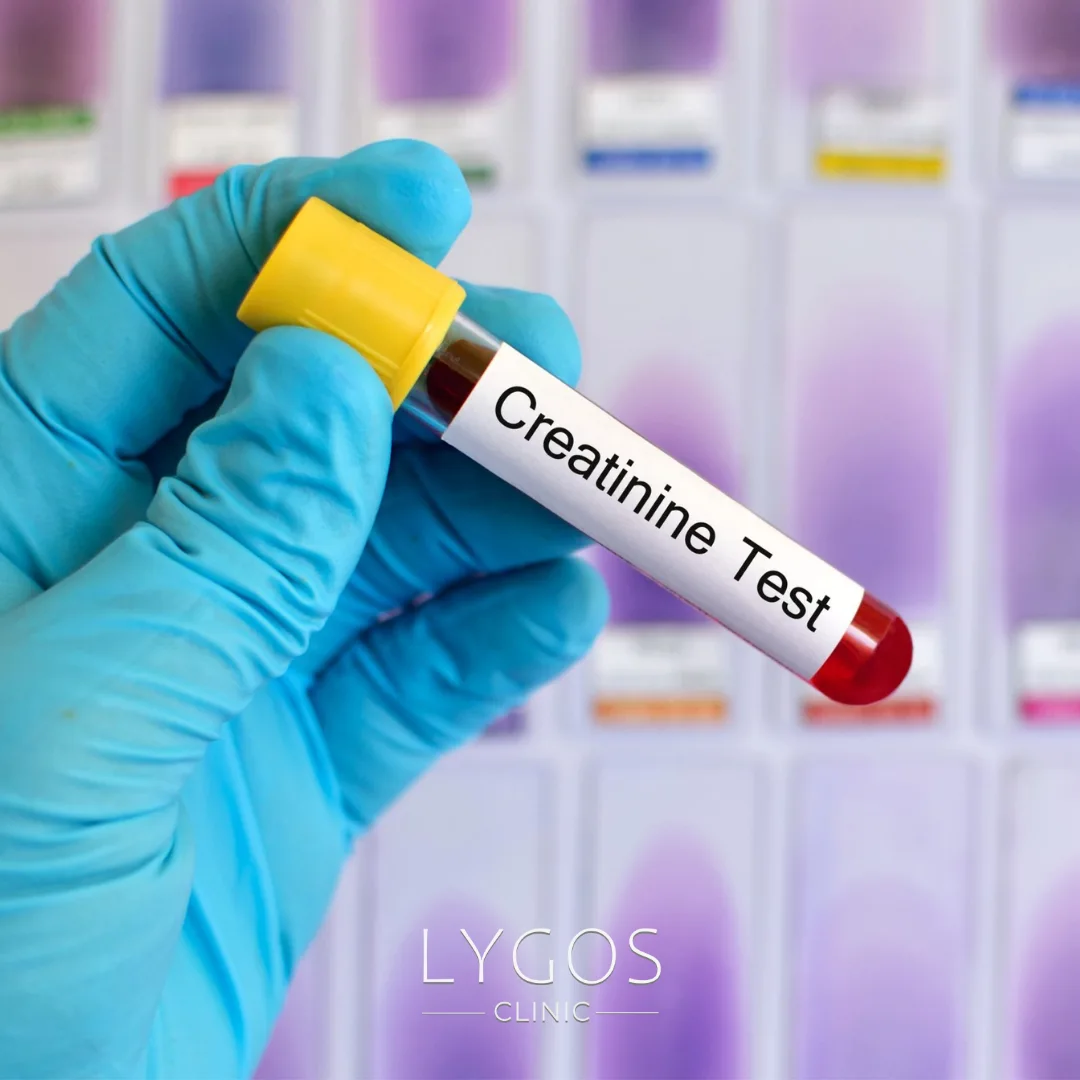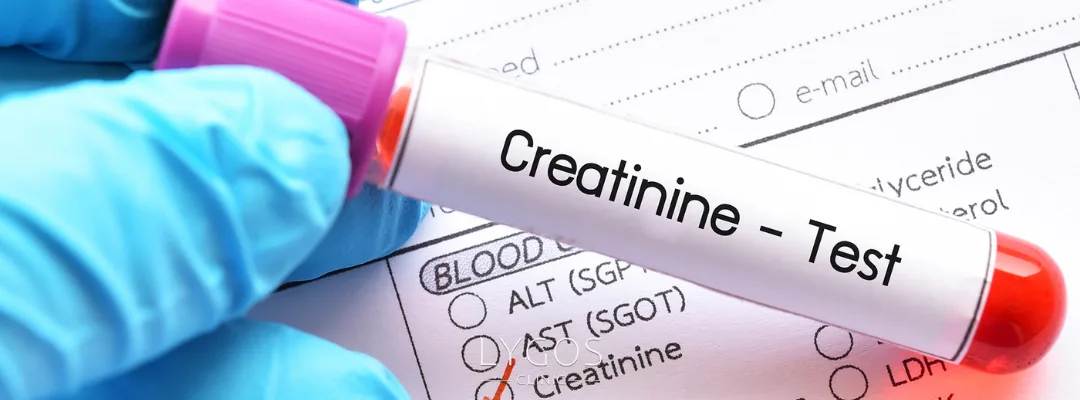What is Creatinine? | Creatinine Levels High and Low

Chose Your Topic
What is Creatinine? Creatinine Levels High and Low
Creatinine is a byproduct of muscle metabolism and is excreted from the body through the kidneys. Muscles use creatine phosphate to produce energy, and as a result, creatinine is produced. Once creatinine enters the bloodstream, the kidneys filter it and excrete it through urine. When creatinine levels are normal, it indicates that the kidneys are functioning properly.
However, an increase or decrease in creatinine levels can signal potential health issues. So, what is creatinine? What do high or low creatinine levels indicate? In this article, we will answer the question “what is creatinine?” and discuss how to manage this condition.

What is Creatinine and What Does It Do?
Creatinine is a waste product produced during energy production in muscles. Understanding how creatinine forms and its function in the body is crucial for monitoring kidney health. When muscles use creatine phosphate for energy, creatinine is produced as a byproduct. The creatinine that accumulates in the body is transported through the bloodstream to the kidneys, where it is filtered and excreted in the urine.
If creatinine builds up in the body, it usually indicates that kidney function is impaired. This is why creatinine levels are an important indicator of kidney health. Therefore, understanding what creatinine is and whether it is at healthy levels is essential.
What are Normal Creatinine Levels?
Creatinine levels can vary from person to person. Factors such as age, gender, muscle mass, and overall health can influence normal creatinine levels. However, generally accepted reference ranges are as follows:
- In men:0.7 - 1.3 mg/dL
- In women: 0.6 - 1.1 mg/dL
- In children: 0.3 - 0.7 mg/dL
These values may vary depending on the laboratory and the type of test used. Therefore, it is important to consult your doctor to assess creatinine levels. When creatinine levels fall outside these normal ranges, your doctor will investigate the underlying cause. At this point, the question of “what is creatinine?” becomes important again, as changes in creatinine levels are directly related to kidney health.

What is High Creatinine?
High creatinine levels often indicate that the kidneys are not functioning effectively. The kidneys are responsible for preventing creatinine from accumulating in the body. However, if the kidneys are not functioning efficiently, creatinine levels will begin to build up in the bloodstream. High creatinine levels are usually a sign that kidney function has decreased. What causes high creatinine levels? Some causes include:
- Chronic Kidney Disease: Kidney failure can cause creatinine levels to rise.
- Dehydration: Dehydration can increase the concentration of creatinine in the blood.
- High Protein Intake: Excessive protein consumption can increase the production of creatinine.
- Intense Exercise: Excessive exercise can lead to muscle breakdown, raising creatinine levels.
- Certain Medications: Antibiotics and other medications can cause an increase in creatinine levels.
High creatinine levels can be a serious warning sign for kidney health, so it is essential to take this condition seriously. If you suspect high creatinine levels, it is important to consult a doctor. Since high creatinine usually indicates that the kidneys are not working efficiently, it may require treatment to prevent further kidney damage.
How to Lower High Creatinine Levels?
When creatinine levels are high, it indicates the need to take steps to improve kidney health. High creatinine levels can be managed with simple measures such as drinking plenty of water, eating a balanced diet, and regular medical check-ups. Here are some tips to manage high creatinine levels:
- Drink Plenty of Water: Staying hydrated helps eliminate creatinine from the body.
- Reduce Protein Intake: Excessive protein can increase creatinine levels. Limiting protein intake can help control these levels.
- Regulate Exercise: Intense exercise can raise creatinine levels by increasing muscle breakdown. Maintaining balanced exercise can help lower creatinine levels.
- Follow Medical Guidance: If your creatinine levels are high, it is important to manage the condition with your doctor's help.

What is Low Creatinine?
Low creatinine levels are often the result of reduced muscle mass or excessive filtration by the kidneys. Low creatinine levels can indicate conditions such as muscle loss or dehydration. Low creatinine levels can sometimes be a sign of a serious health problem. If your creatinine levels are low, the following factors may be considered:
- Muscle Loss: Aging or inactivity can reduce muscle mass and lower creatinine levels.
- Low Protein Intake: Insufficient protein intake can reduce creatinine production, leading to lower levels.
- Pregnancy: Due to increased blood volume during pregnancy, creatinine levels may be lower.
- Certain Liver Diseases: Liver diseases can reduce creatinine production.
When creatinine levels are low, it may be necessary to focus on increasing muscle mass and adjusting dietary habits. Low creatinine levels can indicate that some body functions are weakened, so it is important to consult a doctor for treatment.
How to Address Low Creatinine?
To bring creatinine levels back to normal, consider the following:
- Increase Muscle Mass: Regular exercise can strengthen muscles and raise creatinine levels.
- Increase Protein Intake: Protein-rich foods can boost creatinine production and help prevent low levels.
- Eat a Healthy, Balanced Diet: Adequate nutrition is essential for overall health.
- Consult a Doctor: If your creatinine levels are low, you should see a doctor for proper evaluation.
Creatinine is a waste product produced as a result of muscle metabolism and is excreted through the kidneys. Creatinine levels can indicate kidney health and other health problems in the body. High creatinine levels may indicate kidney dysfunction, while low levels may be related to muscle loss or dehydration. Regular monitoring of creatinine levels is crucial for early detection of health issues.
The answer to the question “What is creatinine?” plays a vital role in maintaining kidney health. If creatinine levels deviate from the normal range, the right steps should be taken, and consultation with a specialist is necessary.
What is Creatinine? Frequently Asked Questions (FAQ)
Creatinine is a waste product produced as a byproduct of muscle metabolism, which is eliminated from the body through the kidneys. Muscles use creatine phosphate to produce energy, and as a result of this process, creatinine is produced.
Creatinine levels are measured through blood or urine tests. A blood test directly shows the creatinine level, while a urine test can help assess how well the kidneys are functioning.
High creatinine levels may indicate that kidney function is impaired or the kidneys are not working efficiently. Additionally, dehydration, excessive protein intake, or intense exercise can also lead to elevated creatinine levels.
Low creatinine levels are typically associated with reduced muscle mass, excessive fluid loss, or certain liver diseases. Pregnancy may also lead to lower creatinine levels.
If your creatinine level is high, drinking plenty of water, reducing protein intake, and moderating exercise are some steps that can help. However, since high creatinine levels generally indicate kidney health concerns, it's important to consult your doctor.


